Sometimes referred to as outsourcing manufacturing, contract manufacturing is defined as a process where a manufacturer or product developer contracts with a third party to outsource segments of, or all of the manufacturing process. A contract manufacturer can build and assemble products on their behalf to improve quality and efficiency, reduce costs, and eliminate waste.
In this guide, we will be focusing on assembly and sub-assembly for both mechanical and electrical products, but it is important to keep in mind that contract manufacturing can be used throughout the production process. Robust manufacturing partners will offer contract manufacturing services beyond assembly and sub-assembly, and also offer precision cutting and metal processing and finishing.
Original Equipment Manufacturers (OEMs) that evaluate the benefits of outsourcing to a contract assembly and sub-assembly service provider and identify the right manufacturing partner for their specific project can alleviate the common pain points associated with the manufacturing process.
In this guide you’ll learn:
- What is contract assembly and sub-assembly
- Why businesses outsource to contract assembly and sub-assembly providers
- How to determine if your business is ready to work with a contract assembly and sub-assembly provider
- How to find the right contract assembly and sub-assembly provider for your product
What is Assembly and Sub-Assembly?
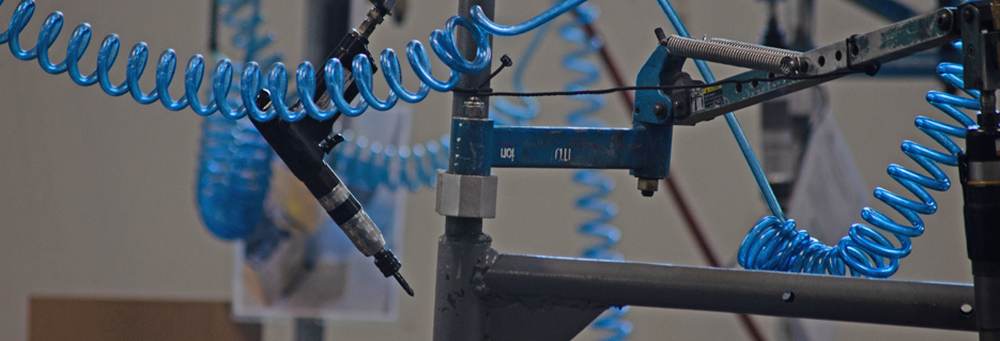
Savvy OEMs are increasingly looking for ways to reduce production costs and improve the overall quality and safety of their manufactured products. While it might be ideal for OEMs to be able to achieve these goals in-house, the reality is that manufacturers are often pulled in too many directions. Having the bandwidth to fully operate a lean and reliable manufacturing project that is backed by skilled labor and advanced technology is not always sustainable for OEMs to engage in alone, and will inevitably lead to a degradation of quality.
Contract assembly and sub-assembly is the process of outsourcing certain production activities to a third party that is well-suited to handle the specific assembly parameters. An OEM or entrepreneur may delegate the production of certain components or the entire assembly of the product.
MUST-KNOW LINGO: Outsourcing
A common practice that allows businesses to fulfill their current needs and focus more on core business operations. Delegating parts of the production line to a USA-based third party leads to a significant decrease in production costs and forgos the need to make investments into fixed costs for assets such as the manufacturing plant, property, and equipment. Outsourcing can be used throughout the production process or to navigate seasonal or cyclical demands.
Specifically, sub-assemblies are generally defined as processes that involve two or more parts that form a component of a larger product assembly. For example, in the case of mechanical assembly, an automotive OEM can delegate the sub-assembly of a car engine to a contract assembler to reduce production costs and promote growth.
Product assembly, however, generally involves the combination of two or more sub-assemblies joined to form a final product. To keep consistent with the previous mechanical assembly example, a contract assembler in the automotive industry, may combine the sub-assembly of metal rims, die-cast rubber, and lug nuts into fully assembled wheels and tires for a larger automotive manufacturer.
Contract Assembly and Sub-assembly Services
A credible and experienced contract assembly and sub-assembly provider will offer additional value-added assembly services to ensure high-quality results and maximum cost-savings. Through these value-added services, contract assemblers are able to take components from various sources and move them closer to the end production with efficiency and precision.
A robust manufacturing partner should provide additional specialized services and equipment to ensure unique project parameters are upheld to the highest standard. These value-added services can involve component receiving capabilities, storage, cable assemblies, precision material cutting, material or metal processing, part modification, testing, QC inspections, packaging, fulfillment, and more.
The right contract assembler should also have the latest in advanced production technology to support electrical, mechanical, and assembly automated systems such as robotic assembly processes, riv-nut gun and pneumatic tools, empire dust collector with electrical upgrades, and one step pallet wrapper to name a few.
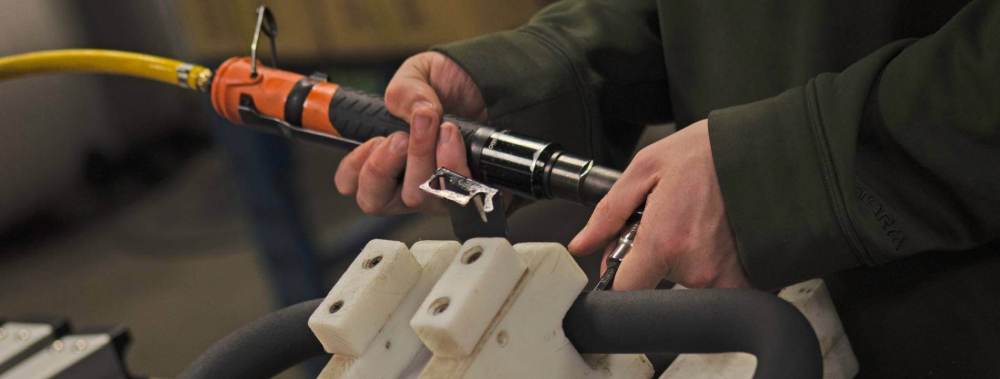
What are the Benefits of Outsourcing to a Contract Assembly & Sub-Assembly Partner?
Manufacturers that delegate segments of their manufacturing process to trusted contract assembly and sub-assembly providers empower visionary and creative owners, senior leaders, and management teams to focus less on logistics and other day-to-day aspects of manufacturing, and more on high priority business opportunities that will enable them to grow their business.
The enablement of business growth is just one of the many benefits of working with an assembly and sub-assembly provider. Many manufacturing companies outsource to contract assemblers to take advantage of the numerous benefits including saving money, cutting down on unwanted tasks, tapping into comprehensive industry knowledge, and embracing flexibility.
Labor
One of the main benefits to delegating manufacturing processes to contract assemblers is for the stabilization and reduction of manufacturing labor costs. Manufacturers looking for a clear window into their labor costs need steady and ongoing management oversight, which is time-consuming and cuts into manufacturing profits.
Manufacturers can outsource to contract assembly and sub-assembly providers to take advantage of a fixed per-unit pricing for labor cost stabilization which effectively flattens out variable manufacturing labor costs. This added control and visibility makes it easier for manufacturing companies to budget manufacturing costs, and ultimately achieve the consistent, stable results they’re looking for.
In addition to providing fixed per-unit pricing for labor, contract assembly helps manufacturers maintain a cost-effective and consistent labor force. Contract assemblers also provide immediate relief in times of labor shortages to ensure productivity is maintained at the highest level. A capable manufacturing partner can deploy their workforce with very short notice to ensure manufacturing continuity is maintained.
With a trusted contract assembly and sub-assembly provider, manufacturers can conveniently bypass the rigors of hiring, training, and dealing with all of the human resource tasks involved in the employee onboarding process. Organizations that delegate their unnecessary manufacturing hassles to a contract assembly service provider can focus more time and resources on other important business operations.
Space
Space – or the lack thereof – is an integral component as OEMs look to grow their manufacturing operations. An experienced contract assembly service provider can supply space on an as-needed basis that is already engineered and outfitted for manufacturing use to ensure manufacturing operations maintain the highest level of operational efficiency.
Space is a precursor that can inhibit growth and development. Therefore the right manufacturing partner should provide a cost-effective space solution that will promote the sustained growth of manufacturing processes.
Storing excess materials is another hidden cost of the manufacturing process that can strain development efforts. Contract assembly and sub-assembly service providers have the capability to store and manage extra material in order to alleviate the logistical hindrances associated with supply chain management.
Cost
Outsourcing assembly and sub-assembly services to a trusted manufacturing partner can have several impactful cost benefits. Partnering with a contract assembler that implements lean manufacturing principles into their production process can significantly reduce costs. A dedication and commitment to lean manufacturing focuses contract assemblers on optimizing production through continuously identifying cost reduction opportunities.
MUST-KNOW LINGO: Lean Manufacturing
Lean manufacturing is a manufacturing process that consists of a set of methods and processes that help identify and eliminate waste from manufacturing operations while simultaneously maximizing productivity. Manufacturers favor lean manufacturing as a methodology that optimizes production process, boosts innovation, decreases cost, and reduces lead times.
OEMs and businesses can improve product quality and production time while reducing costs by partnering with a manufacturing partner who can remove unnecessary waste from the production system through the strategic implementation of certain lean manufacturing tools and methods. Some of these tools and methods include:
- 6S – Otherwise known as 5S + safety, 6S is a workplace methodology that aims to promote and sustain a high level of productivity and safety throughout a workspace. The 6s system includes the following steps: sort, set in order, shine, standardize, sustain, and safety.
- Total Productive Maintenance (TPM) – TPM is a holistic approach to production and equipment maintenance that aims to improve integrity and quality of manufacturing process. TPM emphasizes proactive and preventive maintenance to maximize the up-time and operational efficiency of equipment and ultimately empower operators to take on more responsibility regarding equipment management and maintenance.
- Rank Order Clustering (ROC) – ROC is a method for production flow analysis based on weight and data reorganization. This method is designed to optimize the manufacturing process based on integral independent variables.
- Value Stream Mapping – This tool involves the creation of a flow diagram to visualize each step in the value process. The visualization of production steps allows for further analysis to identify waste and areas of inefficiency to reduce cost and boost production efficiency.
- Bottleneck Analysis – This type of analysis is commonly used in lean manufacturing to identify the weakest link or proverbial ‘bottleneck’ inhibiting the flow and speed of the overall production process. Increasing proficiency of just one or two smaller functions can often dramatically speed up the entire manufacturing process.
Another attractive benefit of outsourcing to a contract assembler is the reduction in overhead costs. By reducing in-house labor and decreasing the space and equipment needed on-site, manufacturers can eliminate many of the hidden overhead costs of their manufacturing operations. These overhead costs include:
- Hiring & Recruiting
- Utilities
- Building maintenance
- Landscaping, mowing, plowing
- Insurance
- Indirect materials
- Indirect labor
- Machine repairs
Quality
Partnering with a professional team of experienced contract assembly personnel that adheres to a robust ISO 9001:2015 Quality Management System (QMS) affords OEMs and businesses numerous quality assurances. Manufacturing partners who adhere to an ISO 9001:2015 QMS repeatedly and consistently demonstrate their capability to provide high quality products and services. Consistent high quality translates into fewer product returns, improved customer satisfaction, and increased repeat orders and referrals.
While many manufacturers are satisfied with their defect rate, a reputable contract assembly provider will ensure that production goals such as increased profits, efficiency, and customer satisfaction are met.
Scalability
Having the ability to downsize or scale operations at a moment’s notice is a superior advantage that comes with using a manufacturing partner. Manufacturing and production space is one of the larger expenses for manufacturers. Expenses rapidly become overwhelming when analyzed by the cost to buy, lease, build, heat, cool, insure, and maintain a building. Businesses can become tied to leases and contracts that result in paying to shut-down operations, transport personnel and equipment, and clean out the production space. An experienced contract assembly and sub-assembly service provider can make it easy and far less costly to increase or decrease product output.
Manufacturing partners further enable scalability by reducing manufacturing timelines and by adhering to strict customer expectations for scheduling deadlines. By partnering with a trusted contract assembler, businesses can enable quick and easy production volume scaling (up or down) without needing to sacrifice quality or reputation. These quick adjustments in production and workforce allow deadlines to be met more frequently and required production outputs to remain consistent.
Process Expertise
Choosing to partner with a contract assembly and sub-assembly service provider that has demonstrated skills, experience, and insight into a specific industry is an added and sometimes necessary benefit of the partnership. For start-up companies and fast-growing businesses, there are often gaps in industry and manufacturing knowledge that can lead to the stifling of much-needed new growth if not addressed proactively and appropriately.
Organizations can take advantage of a contract assembler’s comprehensive industry connections and in-depth knowledge that spans various industries and vertical markets to help grow business operations.
When gauging process expertise, it is imperative to keep in mind prospective contract assemblers’ ability to implement cutting-edge equipment and advanced technology into assembly processes. The fixed costs associated with the initial investments needed for proper assembly equipment can be astronomical and unrealistic for small and medium OEMs. Even when the OEM has a larger assembly budget, it can be difficult to identify the correct machines to invest in, upgrade, or replace.
When partnering with an experienced contract assembly company, businesses can reap the benefits of already-purchased and well-maintained equipment without the hassle or expense. Utilizing a manufacturing partner who has technical insight, expertise, and experience using the right machinery and technology will result in higher-quality products, faster production time, and ultimately a smoother and more profitable production process.
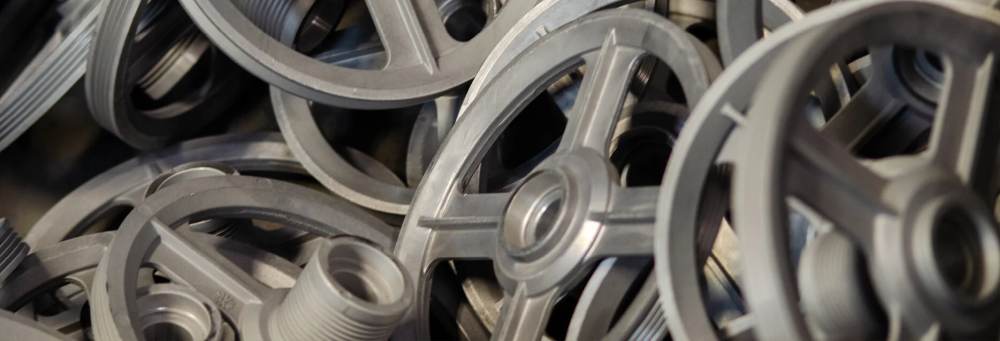
Working with Contract Assembly Providers
There are a few steps businesses should be aware of when preparing to do business with a contract assembly provider. Before beginning, it is essential companies have a solid understanding of their own business goals, product specifications, budget, and schedule.
Manufacturers can simplify the search process and ensure that when it comes down to having that first conversation with a prospective contract assembly provider, they are sitting down with a manufacturing partner that has ample experience, industry connections, and in-depth knowledge that spans multiple industries that can further propel business growth.
is your business ready to outsource?
In order to determine readiness for contract assembly, businesses should have a solid understanding of the contextual benefits and whether the manufacturing project in mind is a solid candidate for outsourced electrical or mechanical assembly. It is important to keep in mind that every project may not be a cost-effective candidate for contract assembly. In order to understand if a project is ready and primed for contract assembly, businesses should use a case-by-case framework that breaks down each product by the following categories: product, budget, schedule, and value to the customer.
- Protect Your Intellectual Property – It’s acceptable to have broad, general discussion about any project or product, in the interest of determining whether there is a good fit between two companies. However, before sharing details, drawings, or files relating the project specifics, be advised to execute a mutual disclosure NDA that protects your confidential information and that of the contract manufacturer.
- Know Your Product – In order to identify the right contract manufacturer that best suits a specific assembly project, it is imperative that one clearly communicates the necessary information about the product being manufactured. Understand your product’s defining characteristics in order to identify contract manufacturers that specialize in your product type so you can be confident they have the capability and expertise to meet expectations. Keep in mind that every project is unique, and will most likely require further details.
- Know Your Budget – OEMs should have a clear understanding of their budget. A lot of time can be saved by being clear about the budget range for outsourcing. The sooner the contract manufacturer has a range to work within, the more quickly the OEM will learn whether this option will work, or not. Organizations that are open with their budget limitations will more quickly identify the contract manufacturer that best fits their overall and financial parameters.
- Know Your Schedule – Businesses should have a tentative timeline to communicate expectations to potential contract assembly and sub-assembly service providers. Most contract manufacturers offer a relatively high degree of scheduling flexibility compared to OEMs with fixed production contracts, schedules, and assembly lines. It is still advisable to allow sufficient lead time to engage with a contract manufacturer, which can vary depending on the complexity of the project. In many cases, 2-4 weeks’ notice will suffice.
- Know your Values – Finding the right contract manufacturer is like adding a vital employee or department to your business. Aim to find a contract manufacturer that shares similar core values to your own.
How to Find the Right Contract Manufacturer
When searching for the right contract assembly provider, it is important to communicate the four initial and essential project parameters – your product, budget, timeline expectations, and core values. Once a manufacturing partner is identified and aligns with project expectations, OEMs and businesses can use this compiled list of strategic questions to help them narrow down the search and ultimately find the assembly partner that is the best fit for their unique manufacturing project.
Capabilities
- What capabilities does the contract manufacturer have in terms of logistics and fulfillment?
- Does your contract manufacturer have the flexibility to quickly adapt to changing customer demands (adjust production volume, expedite delivery, etc.)?
Equipment
- What are their current assets and equipment? Keep in mind that contract manufacturers can not possibly own every type of tool or manufacturing machine. Most are willing and able to source or free-lease from the OEM the equipment needed to complete the project, if they don’t have it to start with.
- If additional equipment is needed, who pays for it?
Experience
- Is the contract manufacturer experienced in your industry? If so, for how many years? If not, what related experience do they have?
- Does the contract manufacturer have the required certifications and registrations in place to manufacture products for your intended market?
Capacity
- If you’re a small client, will your project’s needs be adequately addressed?
- If you’re a larger client, does the contract manufacturer have the capacity; workforce, space, equipment, and process management systems in place to handle your specific workload?
Personnel
- Do key personnel have the engineering expertise to meet my project requirements?
- Who is the dedicated and qualified point of contact handling your project?
Quality Standards
- Does the manufacturer have the ISO 9001:2015 Quality Management Systems accreditation you need?
- Do they adhere to lean manufacturing or other process disciplines that ensure smooth, productive, and efficient production?

Common Contract Assembly FAQs
Below are some of the most common questions and their corresponding answers to help OEMs and businesses further navigate the assembly and sub-assembly process.
Q: How much does it cost to work with a contract manufacturer?
A: One of the many attractive benefits to outsourcing to a contract assembly company is the potential for overall cost savings. However, in order to maximize these cost benefits, businesses need to find the right contract assembly pricing model that aligns with their budget and services required.
The following are variables that can significantly impact the cost of outsourcing.
- Total overall cost vs. labor-only costs
- Quality of finished product (no defects/product returns)
- Speed of production (meeting strict delivery schedules or product demand)
While pricing structures will vary depending on the manufacturing partner, there are some core factors that OEMs can be aware of to get a better sense of the overall cost to working with a contract assembly service provider. These common factors include.
- Types of materials or components (raw materials, electronics, or hardware)
- Types of equipment and tooling required
- Workforce sophistication (general employees vs. specialized technicians)
- Volume (project size)
- Compliance (cost of obtaining required certifications)
Q: What information do I need to share with my contract manufacturer?
A: The information needed to start a manufacturing project will vary depending on the maturity and sophistication of the organization. For established manufacturers, some of the details required include current PDF drawings (with redline revisions, if applicable), sample product(s), and projected schedule(s) (monthly, annually, steady, seasonal, etc.).
For start-ups, entrepreneurs, or new product developers, some of the required information includes prototype(s) or product sample(s), specified and sourced components, and budget for assembly.
Q: What is the onboarding process like?
A: Once quoting, estimating, negotiating, and scope of the project is clearly established, and a prospective customer is ready to begin production, there is typically an onboarding process in order to set up a business account. A prospective customer should be prepared to provide the following information to ensure a speedy and efficient onboarding process:
- Customer information/profile
- Credit application
- Guarantee
- Submittals (including purchase order, current W-9, certificate of insurance, tax-exempt form if applicable, and packing slip template if applicable)
Q: What certifications should my contract assembly service provider have?
A: When it comes down to certifications and accreditation, contract assembly and sub-assembly providers should adhere to an accredited ISO 9001 Quality Management System (QMS) with annual audits to assure compliance to consistent standards. ISO reviews and revises the ISO 9001 standard every 6-8 years. Manufacturing partners that demonstrate a commitment to operating under ISO 9001 quality standards assure the production of higher quality products due to these stringent standards.
OEMs and businesses should also make sure a prospective manufacturing partner has the appropriate industry accreditation to ensure compliance.
MUST-KNOW LINGO: ISO 9001
ISO 9001 refers to the frequently updated and revised international standard that specifies the requirements for a QMS. Organizations that uphold these standards demonstrate the ability to consistently provide higher quality products and services that meet customer and regulatory requirements.
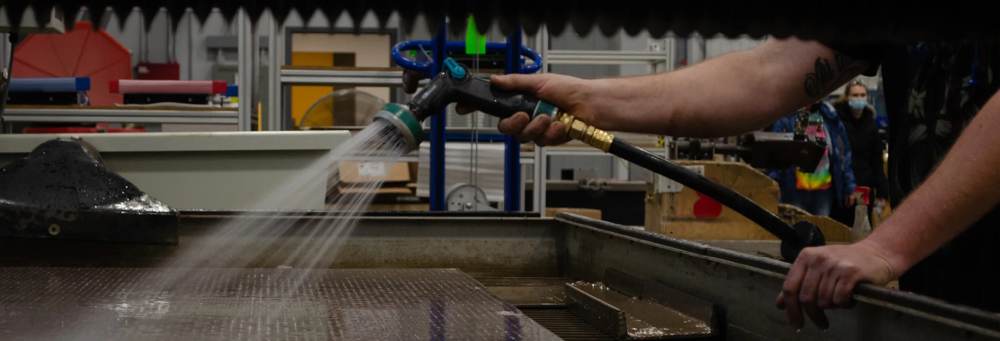
Partnering with a Contract Assembly Provider for Your Business
The right manufacturing partner should offer mechanical and electrical assembly and sub-assembly that consistently delivers high quality products backed by cutting-edge technology and expert technical and engineering expertise. The delegation of assembly allows organizations to focus more time and money on other high priority areas and less time worrying about the logistical hassles and workforce complications that come with production management.
By understanding the extensive benefits of contract assembly services, OEMs and businesses can better identify opportunities to eliminate unnecessary waste, reduce overhead and labor costs, and scale at a sustainable trajectory.
No matter which manufacturing partner is chosen for a business, doing research before signing a contract will save valuable time, energy, and money as organizations begin to foster a new partnership with a qualified and trusted contract assembly and sub-assembly service provider.



